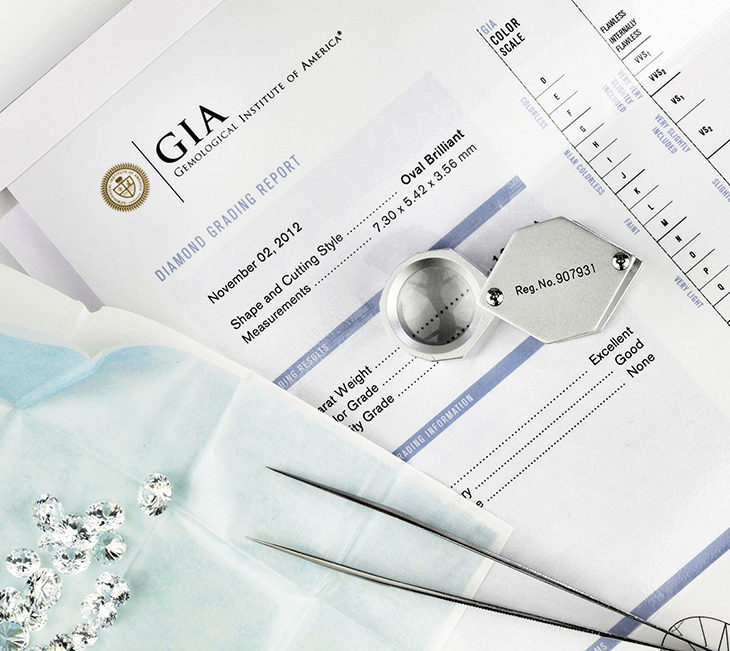Are all diamonds certified?
Most buyers are blissfully unaware of the complexities of diamond certification. For those who start researching diamonds, there can be an information overload. This is often due to an internet saturated with guides, forums and blogs. For those of you who think all diamonds are certified, this simply is not true.
Conflict free does not mean certified
Most rough diamond shipments are traded across borders with a valid Kimberley Certificate issued.
The Kimberley Process Certification Scheme (KPCS) is the process established in 2003 to prevent “conflict diamonds” from entering the mainstream rough diamond market. This certificate accompanying rough diamonds should not be confused with a laboratory certificate for the polished diamond. The laboratory certificate validates specific information such as the shape, size, colour and clarity grade of the stone.
It might come as a surprise to you, but the majority of diamonds are sold without any indication of their origin.
In 2014 we introduced our first fully traceable diamonds. As a result we can now create an engagement ring with a complete chain of custody. CanadaMark diamonds with full GIA certification, set into hand mined Fairtrade Gold from Sotrami, Peru. We can also confirm that there is a positive impact at the start of the supply chain benefitting the indigenous population working at the start of the supply chain.
Exceptions – diamonds rarely certified
To begin with, consider small diamonds—sizes suitable for cluster rings. The cost to submit each diamond to a laboratory would make the finished ring far more expensive than is necessary. For this reason, only diamonds above a certain size tend to be certified. As a general rule, diamonds above 0.25cts are often certified, but not always. Larger diamonds, especially higher colour and clarity diamonds typically include certification. This validation is especially important where a small difference can result in a significant difference in the sale price.
Why is there a demand for certified diamonds?
The demand for certified diamonds comes from a desire to authenticate any given quality of diamond.
For the consumer, there has to be a trusted system in place to verify the quality of the diamond being sold. Even within our industry, varying standards exist amongst diamond grading laboratories. For this reason we express a preference for diamonds certified by the Gemological Institute of America, (GIA) regarded as one of the most trustworthy organisations for diamond grading.
Is it possible to have an uncertified diamond certified?
The simple answer is yes. Within the UK, there are independent diamond grading laboratories offering respectable grading without the need to send your stone abroad. AnchorCert at the Assay Office is one such organisation. They offer a range of laboratory certificates to suit different budgets, from simple report cards to more detailed diamond grading certificates.
About Mark Johnson
My name is Mark and I'm founder at Serendipity Diamonds. I have 30 years or experience in polished diamonds and jewellery. Today, I work with an expert team in our Isle of Wight jewellery showroom located in Ryde. Most of my work involves helping clients in our showroom, working on our two websites and photographing jewellery commissions.



